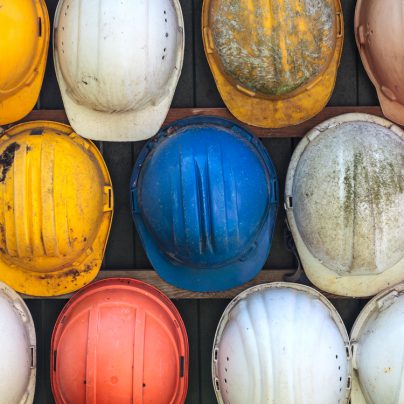If you are a small builder, perhaps a self employed building contactor, there are laws in place to ensure that you carry out work in a safe manner. As a building contractor you will be undertaking jobs such as private projects in domestic and business settings. When working in domestic properties you have the sole responsibility when it comes to ensuring health and safety on site. When working in business premises the responsibilities lie with both you and the client.
Building Contractor, be Aware of Your Legal Responsibilities
As a small building contractor you are required by law to:
- Manage the risks and the hazards onsite.
It is your duty to carefully create plans to follow, manage the plans and monitor all of the construction work in a way that ensure there are no risks for you or your employees. One of the ways you can achieve this through creating risk assessments and ensuring they are followed.
Small builders must follow the CDM regulations and therefore it is necessary to always arrange facilities for your workers, stop unauthorised access to the site, set lead times for any sub-contractors and also plan, monitor and manage the construction work in order to control the risks to health and safety.
It is important to provide accurate information and detailed training to all of your employees. Make them aware of all of the precautions in place, rules that must be followed and safe methods of work.
When you take on new employees or contractors carry out an induction to the site, discuss the risks and the precautions in place to overcome the risks that have been identifies, inform the employees of the rules on site and give information regarding emergency procedures. Always ensure each employee is trained to work for each job they are assigned.
- Be cooperative with the owner of the home you are working in and the business client.
If you are working in a business property you must respect that the client also has legal duties that need to be followed. Make sure that you comply with these and also in domestic settings you will need to communicate your responsibilities surrounding the health and safety of the site while work is being completed.
Be Aware
It is worth noting that the most common cause of death in the construction industry comes from falls from height while other fatalities are often caused by lifting, electricity, mobile planes and collapses of excavations. If you are not able to carry out certain areas of work due to lack of training or licensing it is vital that you do not go ahead with the work.
Health and safety training, risks assessments, method statements and health and safety policies are just some of the health and safety services available to small builders and the construction industry. To ensure you are following the law and managing a safe working environment that minimises risks to everyone it is worth contacting health and safety consultants. You can do this by calling 0800 1488 677 and asking about the construction services which are currently available.

A chartered (fellow) safety and risk management practitioner with 20+ years of experience. David provides a healthy dose of how-to articles, advice and guidance to make compliance easier for construction professionals, Architects and the built environment. Get social with David on Twitter and Linkedin.



One Comment
Access to health and safety advice is seen to be difficult for these firms the HSE free phone line has been closed and there is a perception that paid for advice can be costly.
There is a lot of free advice on the HSE website and business associations may provide guidance as part of their range of services.
If consultants are required they should be asked about how to tailor their services to what you need and what you can afford.